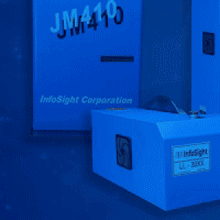SAIL Recognized for Environment Management
06/28/2011 - Maharatna Steel Authority of India Ltd. (SAIL) has received the prestigious Golden Peacock Environment Management Award for 2011. The award was recently presented by Union Minister for Home Affairs Shri P. Chidambaram.
Maharatna Steel Authority of India Ltd. (SAIL) has received the prestigious Golden Peacock Environment Management Award for 2011. The award, recently presented by Union Minister for Home Affairs Shri P. Chidambaram, recognizes SAIL’s initiatives and achievements in the field of environment management.
The Golden Peacock Awards, instituted by the Institute of Directors, New Delhi, are presented annually under various categories.
SAIL Chairman C.S. Verma said that the steel industry “is putting in concerted efforts and adopting a multi-pronged strategy” to minimize the emission of greenhouse gases and to achieve greater sustainable practices. Giving examples of SAIL’s achievements in this endeavor, he pointed out that in the last four years the company has succeeded in reducing particulate emissions by 52%, specific water consumption by 11%, and specific energy consumption by 5%, and increased solid waste utilization by 18%.
The Corporate Environmental Policy of SAIL also emphasizes “conducting its operations in an environmentally responsible manner, complying with applicable regulations and striving to go beyond.” In accordance with the National Environment Policy, the company has built a management system at its different plants and units for further environmental protection, including acquisition of certification under ISO:14001. All major units of SAIL, covering both production and service departments, are ISO:14001 accredited. In addition, the townships of Bhilai, Rourkela, and Salem Steel Plants have been certified to ISO:14001.
To improve the environment inside its plants and their surrounding habitat, SAIL has implemented such measures as regular maintenance and consistent operation of air pollution control systems, effluent treatment plants, recycling of solid wastes, and adoption of cleaner and environment friendly technologies.
Recently, SAIL’s Bhilai Steel Plant installed a 30 million liters per day (MLD) sewage treatment plant at a cost of approx. Rs. 41 crore using in-house resources to achieve a “zero effluent discharge” target. The scheme is expected to reduce dependence on the Chhattisgarh government’s Water Resources Department.
Working with the Ministry of Environment & Forests’ Ozone Cell and UNDP, SAIL took up an umbrella project for replacement of carbon tetrachloride (CTC) used as a cleaning solvent by trichloroethylene (TCE) at six of its steel plants. The objective of this project was to phase-out the use of about 268 tonnes of CTC being used at the Oxygen Plants and Electrical Repair Shops of these selected units for cleaning of storage tanks, electric motors, cylinders, piping, etc.
Among other environmental activities include extensive afforestation programs in all of its plants and mines to develop sinks for absorbing air and noise pollution; more than 17.5 million trees have been planted at the SAIL plants and mines since inception.








